Welcome to The Bilas Index, Vol. I, for the 2023-24 college basketball season. As everyone knows, while the masses in the press and general public stumble around in the dark wondering which teams and players are best, you will see the light, as illuminated by The Bilastrator.
The Bilas Index is the most reliable predictive measurement of team capability and the most trustworthy compilation of basketball accomplishment on this (or any) planet. The Bilas Index will tell you not only what the best teams have done, but what the best teams are capable of doing in the future. While recognized metrics are taken heavily into account because those metrics inform as to what a team or player has done, The Bilas Index is powered by the unimpeachable and unfailing basketball judgment of The Bilastrator's gray matter, which consists of multiple quadrillions of neurons firing in the basketball context to explain the panorama of organic evolution of the game itself and those who play it.
The Bilastrator's neurons -- not to mention the somas and dendrites in each neuron -- form the most powerful analytics computer in the universe that can explain and shatter preconceptions to become the greatest breakthrough of the boundaries of basketball knowledge and understanding. A basketball mind like The Bilastrator's comes around once in a thousand years, and one can only wonder how great this game would truly be if The Bilastrator had some time around Dr. Naismith when he was inventing the game.
The true beneficiary of The Bilastrator's lofty peak of basketball intellectual achievement is you, the fan. One can use The Bilas Index for greater understanding and enjoyment of the beautiful game, or one can use it to select teams and seed the NCAA tournament (and stop wasting time and money, NCAA selection committee), or one can use it to win office pools and take down casinos with such valuable and reliable data. If wagering with The Bilas Index, please use the information for good, not evil. At the very least, one should stop to contemplate just how fortunate we all are to live in an era when one of history's greatest basketball minds, the priceless rarity that is The Bilastrator, shares his work with the masses.
The Bilastrator brings you The Bilas Index before a single game has been played, which is truly extraordinary and generous. As always, you're welcome, planet Earth.
Preseason Bilas Index Rankings:
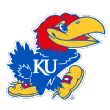
No. 1 Kansas Jayhawks: The defending 2022 national champions followed up the net cutting with more net cutting, winning yet another Big 12 title and securing yet another No. 1 seed in the NCAA tournament. But, with Bill Self sidelined by a health scare and unable to coach the Jayhawks, Kansas was clipped by Arkansas in the second round after a 28-win season. Kansas lost talent to the NBA and also through the transfer portal, yet Self has another title-caliber team. That, ladies and gentlemen, is Kansas Basketball. The names change, but the song remains the same. Kansas returns a lineup of all-star talent, with defensive stars Dajuan Harris Jr. and Kevin McCullar Jr. leading the way. The difference-maker this season came through the portal, passing seven Jayhawks on the way out as he came in. Former Michigan center Hunter Dickinson will play his last college season in Lawrence, and he provides Self with a left-handed, skilled, inside-out, highly productive and great-passing big man to build around. Dickinson has a great feel for the game and has a hunger to win after missing the tournament with Michigan last season. Teaming him with Harris, who finished second in the Big 12 in assists with 6.2 per game, should provide Kansas a great screen-and-roll tandem. Dickinson allows the pogo stick-like K.J. Adams Jr. to move to the power forward spot -- allowing him mismatch opportunities. A key will be perimeter shooting, and freshmen Johnny Furphy and Jamari McDowell will need to make shots, as will Towson transfer Nicolas Timberlake. If Kansas shoots it well, the Jayhawks can cut more nets down in Phoenix.

No. 2 Duke Blue Devils: The post-Coach K era started with only one returning starter and youth everywhere but resulted in 27 wins, an undefeated home record, an ACC tournament title and a No. 5 seed in the NCAA tournament. The young but talented Blue Devils were physically manhandled by Tennessee in the second round but had the talent to advance further. This season, Jon Scheyer's team has greater experience, depth and talent across the board in order to withstand such physicality and handle it better. Tyrese Proctor is a year older and is much more confident and physically stronger to start his second year, and he will be among the best point guards in the country, teaming with a veteran presence in four-year starter Jeremy Roach. Kyle Filipowski is now healthy after putting up an impressive freshman season and should be in the national player of the year mix in his second year in Durham, North Carolina. Defensive presence Mark Mitchell is set to take off in his second year, and a stalwart recruiting class of Sean Stewart, Jared McCain, Caleb Foster and TJ Power can afford to blend in with veterans and develop, instead of having to take lead roles. Sophomore big man Christian Reeves has improved and should be prepared to play meaningful minutes. Duke will be more versatile and flexible, but it might not be able to protect the rim in the same fashion after losing Dereck Lively II. Still, this is a formidable lineup that has experience.

No. 3 Michigan State Spartans: Tom Izzo has been quite vocal in his opposition to the transfer portal and has chosen to use it sparingly. As a result, Michigan State has developed like an old-school program that has been constructed around the same guys, losing very few along the way, and getting old together. This will be Izzo's best team in several years, and last season's Spartans squad made the Sweet 16. Michigan State has a veteran crew that has struggled at times and triumphed at times but has been bloodied together and toughened up by adversity in the old-school way. Nobody in the Big Ten has better guards than All-Big Ten performers A.J. Hoggard and Tyson Walker, and Jaden Akins, Malik Hall and Mady Sissoko have played a lot of high-level minutes in the Big Ten. The newcomers are all freshmen, and they are a talented bunch, led by big man Xavier Booker, point guard Jeremy Fears Jr. and one of the most spectacular athletes in the country in lefty Coen Carr. Carr is the best dunker in East Lansing since Jason Richardson, and he is a fabulous offensive rebounder, and there is no more valued skill by Izzo than rebounding. If Michigan State takes care of the ball, which improved last season, the Spartans can add to Izzo's eight Final Fours and help end the Big Ten's national championship drought. The Spartans are the last Big Ten team to win one, in 2000.
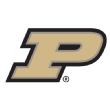
No. 4 Purdue Boilermakers: Purdue has been excellent for so many years, especially of late. The Boilermakers have a model program, a truly outstanding coach and leader in Matt Painter, and an admirable record of great success ... until the NCAA tournament. That is where the nightmares and scar tissue come in. The past three seasons, Purdue has been bounced from the NCAA tournament by a double-digit seed, punctuated by last season's horrifying loss to Fairleigh Dickinson in the first round. Purdue became only the second team ever to be bounced by a 16-seed, joining Virginia in 2018 when the Cavaliers lost to UMBC in the first round. Virginia's 2018 loss to UMBC can be instructive. Virginia owned the loss and reacted positively, even though it was constantly brought up and there was significant scarring. The following year, Virginia won the national championship, beating Purdue in the Elite Eight after a near miracle shot to take Purdue to overtime. Can Purdue bounce back after that unimaginable loss last season? Well, it will be much easier with the return of consensus national player of the year Zach Edey. Edey was the most efficient and dominant presence in the game last season, and he should be even better this season. If he wins another national player of the year award, he will be the first repeat NPOY since Ralph Sampson (in keeping with the Virginia theme). Edey finished in the top 10 in the nation in scoring, rebounding and offensive rebounding, and led the Big Ten in field goal percentage. Foul him, and he shoots 74% from the free throw line. Edey has plenty of talent around him, and sophomore guards Braeden Smith and Fletcher Loyer are a year more experienced. Those two are gamers. Ethan Morton, Mason Gillis, Caleb Furst and Trey Kaufman-Renn are all capable players, giving Purdue as formidable a roster as anyone. Sure, the critics said Purdue wasn't athletic enough at the guard spots, but the Boilermakers are plenty good. They just have to do it. The Bilastrator believes they will.

No. 5 UConn Huskies: The Huskies were a surprise last season. Unranked to begin the year, UConn was the best team in November and December, looking nearly unbeatable. Then, UConn hit a slide that brought doubt, but that doubt was erased in February and March, when the Huskies marched to the national championship and left no doubt. Without dropping a single nonconference game all season, Dan Hurley's squad was nearly perfect in postseason play to win UConn's fifth national championship and signal that Hurley had brought the UConn program back to the national spotlight, solidifying the Huskies among the bluest of blue bloods. Well, this will be another center-ring season in the spotlight, and UConn has the talent to make another run at a ring. But, it isn't guaranteed, as a ton of talent and culture leaders have left the program. Gone are sharpshooter Jordan Hawkins, dominant big man Adama Sanogo and the multitalented Andre Jackson Jr., but there is still plenty left in the champions' cupboard. Donovan Clingan has star written all over him but won't be available early due to injury. When he returns, he will be the center of attention and one of the best players in the country. Tristen Newton, Alex Karaban and Hassan Diarra will provide leadership, which will be needed with so many newcomers, especially the freshmen. Rutgers transfer Cam Spencer will provide shooting to a team that lost a ton of record-setting perimeter firepower. A major key will be freshman Stephon Castle, a 6-5 wing who can do it all at both ends of the floor. Castle can handle and pass, and he can make things happen with the ball in his hands. Junior Samson Johnson will get additional time early due to Clingan's absence, which should speed his development. Look, last season's title often gives a shine to the next season's expectations that might not be achievable, but UConn will be legit this season.
Hunter Dickinson is embracing being preseason No. 1 💯 @KUHoops pic.twitter.com/i8oPr2b3Lf
— NCAA March Madness (@MarchMadnessMBB) October 19, 2023
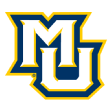
No. 6 Marquette Golden Eagles: This is the team that one would expect from Shaka Smart, given what we saw at VCU, especially in 2011. Smart might have his best team since that Final Four group that put him on the radar as one of the nation's best coaches. Smart looks incredibly comfortable at Marquette, and he seems incredibly confident in this group. Marquette has skill and versatility, and a maturity level and togetherness that are impressive. The Golden Eagles might very well be the best team in the Big East and beyond. Marquette is the defending Big East regular-season champ and won 29 games last season. Smart has the nation's best point guard in Tyler Kolek, who ranked among the nation's assist leaders at 7.5 per game, and he improved his shooting and finishing to average almost 13 points per game. Kolek was the Big East Player of the Year and will challenge for that honor again. Kolek has weapons around him, most notably Kam Jones, an All-Big East wing who led Marquette in scoring and 3-point shooting. Oso Ighodaro became one of the most valuable and versatile players in the Big East last season and is a fantastic defender, rebounder and passer. Guard Stevie Mitchell and forward David Joplin will be key players, with Mitchell among the nation's toughest defenders and Joplin as one of the most underrated scorers. Last season, Marquette did everything well but rebound consistently. The Golden Eagles take care of the ball and take the ball from opponents, and they shot an outstanding 58% from the field inside the arc.
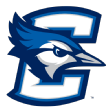
No. 7. Creighton Bluejays: The Bluejays were a questionable call away from the Final Four last season, but they lost point guard Ryan Nembhard to Gonzaga and versatile wing Arthur Kaluma to Kansas State. Still, coach Greg McDermott returns six of his top eight scorers, including one of the nation's best big men in Ryan Kalkbrenner. Kalkbrenner is one of the best rim-protecting big men in the country, and his ability to cover an on-ball screen and still protect the rim is unique. He rebounds with two hands and has the ability to finish plays around the rim with great efficiency. Plus, he is easy to play with because he is all about his team rather than himself. Trey Alexander and lefty Baylor Scheierman form a fantastic combo with tremendous versatility. Alexander can really defend and has a great middle game, and Scheierman is a marksman who can rebound, handle and pass with fearlessness. A real key will be Utah State transfer Steven Ashworth, who can really shoot it with range. Ashworth, Mason Miller and Francisco Farabello can all shoot it, but the key will be point guard play. Does Alexander take over full-time?

No. 8. Tennessee Volunteers: Nobody doubts Tennessee on the defensive end or that it will play hard and together. That is a staple of Rick Barnes-coached teams, wherever he has been. Tennessee was a contender all last season and had moments of brilliance on the offensive end. There is little to quarrel about with the offensive scheme. The Vols just had too many segments of key games when they couldn't make shots. That puts too much pressure on the defense to get stop after stop. Personnel losses will make Tennessee different, but the Vols could still be better this season. Olivier Nkamhoua transferred to Michigan, Uros Plavsic and Tyreke Key graduated, and Julian Phillips declared for the NBA draft. But, fan favorites Santiago Vescovi and Zakai Zeigler return, and Zeigler returns from an ACL injury. Those two form a fantastic backcourt with Zeigler disrupting and Vescovi running off screens for 40 minutes. If Josiah-Jordan James can remain healthy, he is an All-SEC talent with experience and urgency. Expect Tobe Awaka and Jonas Aidoo to be improved, and freshman Freddie Dilione V to be among the Vols' most versatile and talented players. Tennessee has set a high bar, where making the tournament and having a 25-win season doesn't seem like enough. This can be the season to break through, especially if Zeigler can come back fully healthy.
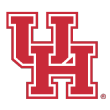
No. 9. Houston Cougars: For several seasons now under Kelvin Sampson, Houston has led the nation in playing hard. Combine the blue-collar work ethic with talent, and you have Final Fours and Elite Eights, which Houston has made an expectation. This season, the Cougars move to the Big 12, but don't expect their postseason results to change much. The only thing that will change is the conference record; it won't likely be 17-1 in Big 12 play, as Houston moves to the best basketball league in the nation. The Cougars will still finish in the top five of the conference. The past five years under Sampson, Houston has won 149 games, or 29.8 wins per season. Last season, Houston was 33-4 and reached the Sweet 16 before losing to Final Four-bound Miami. This season, Sampson has to replace three starters, including top scorer Marcus Sasser, but he has the talent to challenge again. Jamal Shead, a big man in a small guard's body, is one of the toughest players in America, and he will lead two transfers, LJ Cryer from Baylor and Damian Dunn from Temple. Cryer is a pure scorer, and Dunn has a great feel for the game. Both are automatic from the foul line, and Houston gets fouled a lot. Terrance Arceneaux and Emanuel Sharp both need to make a jump, and there will be opportunity. The interior will make the difference between very good and potentially great for Houston. J'Wan Roberts returns as one of the best offensive rebounders in the country, and Ja'Vier Francis can blossom with more opportunity
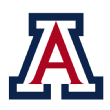
No. 10. Arizona Wildcats: The Wildcats had the look of a national champion last season, winning 28 games and playing their best at the end of the season. Then, Arizona played Princeton in the NCAA tournament, and it was all over. Next, the doors opened and six players were out the door, including Azuolas Tubelis and Kerr Kriisa. But, coach Tommy Lloyd can recruit, and the transfer portal works both ways; you can bring good players in just as quickly as they can leave. Lloyd still has Oumar Ballo, Pelle Larsson and Kylan Boswell returning, and Boswell has overcome injury to put himself in position to take off as a sophomore. The portal helped bring in North Carolina transfer Caleb Love, who had 23 points in his first exhibition game as a Wildcat; Alabama transfer Jaden Bradley; and versatile San Diego State transfer Keshad Johnson. Love will not be the primary handler, but he was often better playing off the ball for the Tar Heels. He can score and play up-tempo, and Bradley can really drive the ball but had not yet figured out the shooting piece. Other key performers should be freshman wing KJ Lewis, sophomore big man Henri Veesaar, freshman big man Motiejus Krivas and sophomore big man Dylan Anderson. The Wildcats will not be quite as powerful early, but Lloyd will help them figure it out. There is really good talent there.
Here is my 2023-24 All-America First Team prediction: pic.twitter.com/T6J0Og7S5n
— Jay Bilas (@JayBilas) October 25, 2023
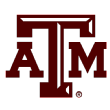
No. 11. Texas A&M Aggies: The Aggies took a great step forward last season, finishing second in the SEC and winning 25 games, including 17 of the last 20. This season is not only a validation season, it is one that Texas A&M can make truly special. This team has experience winning, and experience getting knocked around, too. The Aggies are tough. Four starters and seven regulars return, led by Wade Taylor IV, a contender for SEC Player of the Year. Taylor is poised to have an All-America season after averaging 16 points and 4 assists last season, having improved his shooting and proving to be an automatic free throw shooter. Super Senior Tyrece "Boots" Radford is one of the toughest covers in the SEC and bulls his way to the lane and to the foul line. Julius Marble and Henry Coleman III return up front, and UIC transfer Jace Carter provides versatility, shooting and wing rebounding. If Buzz Williams, the SEC Coach of the Year, can get some solid contributions from newcomers, Texas A&M can challenge for the top of the SEC.
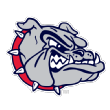
No. 12. Gonzaga Bulldogs: How the mighty have fallen ... Gonzaga is not in the preseason top 10. Isn't it amazing that a West Coast Conference team has earned the expectation of greatness every year? It is remarkable. In the past five years, Gonzaga has won 154 games, or 30.8 wins per season over that stretch. So, go ahead and think that Gonzaga plays in a weak league, therefore racking up wins ... but, then try to rationalize eight straight Sweet 16 appearances, including two national championship game appearances since 2017. You cannot. Gonzaga is a legit power in college basketball, and legit powers don't fade because they lost some players to graduation or the NBA. Gonzaga lost a ton from last season's 31-win team, including Drew Timme, one of the most decorated winners in college basketball history. Julian Strawther and Rasir Bolton are big losses, as well, but don't feel sorry for coach Mark Few. He has the players to make another Sweet 16, perhaps beyond. Nolan Hickman and Anton Watson are back for another run, but the keys to success will be the transfers. Creighton transfer Ryan Nembhard, whose brother Andrew was an uber-successful transfer at Gonzaga, will give Mark Few a lineup with two point guards, sharing the ball with Hickman. Nembhard could really push the ball at Creighton, and he is a great decision-maker and playmaking guard. Eastern Washington transfer Steele Venters is a shooter with size and the ability to make challenged shots from all over the floor. Venters was the Big Sky Player of the Year last season. And, Wyoming transfer Graham Ike, a double-double big man for the Cowboys, can provide the low-post threat in place of Timme. Ike, if he stays healthy, is an excellent post scorer and rebounder. Jun Seok Yeo, Braden Huff, and Luka Krajnovic provide depth and skill as first-year players. Gonzaga has some question marks, but they will be exclamation points toward the end of the season.

No. 13. Texas Longhorns: No team had the roller-coaster ride of emotions that Texas took. Chris Beard was dismissed, and Rodney Terry took over and won the job on a permanent basis. With all of the speed bumps and adversity, Texas still won 29 games and reached the Elite Eight, a remarkable achievement given the difficulties in its way. But, with Timmy Allen, Marcus Carr, Sir'Jabari Rice and Christian Bishop now gone, there were holes to fill. Well, Terry and his staff filled them. Oral Roberts transfer Max Abmas, one of the nation's best scoring guards, is now in Austin, as is Virginia transfer Kadin Shedrick, a talented rim protector who wants to prove he can score away from the lower-possession style of Virginia. Tyrese Hunter improved his shooting last season and put up some monster games, and Dillon Mitchell and Dylan Disu are both athletic and capable. Brock Cunningham will again bring the inspirational hustle plays, and newcomers Chris Johnson, Ze'Rik Onyema (recruited by Terry at UTEP) and the well-traveled Ithiel Horton should provide depth and lineup flexibility. The deciding factor will be Abmas. Nobody expects Abmas to score 23 points per game like he did at ORU, but if he can put up numbers like Marcus Carr, he will be All-Big 12, and Texas will be very good again.
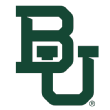
No. 14. Baylor Bears: Baylor lost a spectacular trio of scorers in Keyonte George, Adam Flagler and now-Houston Cougar LJ Cryer, yet the Bears could be just as good, if not better, than last season. Coach Scott Drew brought in a similar trio of scorers in VCU's Jayden Nunn, Toledo's RayJ Dennis and super freshman Ja'Kobe Walter. All three are legit shotmakers and opportunity creators. One of the easiest players in American to root for is Jonathan Tchamwa Tchatchoua, who should be much more explosive after returning last season from a near catastrophic knee injury. And, Jalen Bridges, who established himself as a star-caliber player last season, should be even more confident as a star in green. Baylor starts the season with Auburn, then will be challenged even more in December with Seton Hall, Michigan State and Duke before the gantlet of the Big 12.
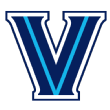
No. 15. Villanova Wildcats: Kyle Neptune took over for Jay Wright and took Villanova to a 17-17 season in his first year. But, Villanova was not at full strength due to notable injuries. Justin Moore is back and prepared, and he should be one of the top guards in the country. Moore and Eric Dixon are guardians of the Villanova culture, which has been the best in the country for a decade. Mark Armstrong is healthy and ready to take a jump to be a load-carrying veteran presence. The key for the Wildcats will be the performance of transfers Tyler Burton (Richmond), Hakim Hart (Maryland) and TJ Bamba (Washington State). If that trio brings the positive traits shown at their previous stops into the Villanova team concepts, Villanova will be back.
Here are my top 5 incoming freshman for the 2023-24 college basketball season... pic.twitter.com/uryLPc9BoH
— Jay Bilas (@JayBilas) October 26, 2023
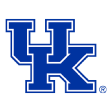
No. 16. Kentucky Wildcats: John Calipari has tried the transfer portal, seemingly eschewing the one-and-done model that had been so successful for most of his tenure at Kentucky. The Wildcats won 48 games over the past two years but did not get past the second round of the NCAA tournament in either season and were trailing Tennessee and Alabama in the polls. While Coach Cal seemed to be trying to get ahead of the transfer culture that college basketball shifted toward, he had been one of the very few who could attract the mega talent to make young teams work. Both approaches have been successful, but the past two seasons have not been "Kentucky successful." After two years of leaning on transfers, Coach Cal seems to be heading back to the future with the nation's No. 1 recruiting class, highlighted by uber-talented Justin Edwards, point guard D.J. Wagner and guard Rob Dillingham (who put up 40 points in a Blue-White scrimmage at Northern Kentucky). Wagner can do everything and is an outstanding defender, while Edwards is a long scorer who is crazy explosive and versatile. Add in shooter Antonio Reeves, versatile, well-traveled transfer Tre Mitchell, and freshman Reed Sheppard (son of Kentucky royalty) and Kentucky has talent across the board. A major key will be rim protection and interior play, and Aaron Bradshaw should be the guy in the middle. He will not start the season but will be a major factor when he returns. The Wildcats will be a work in progress early but will be very good come March.
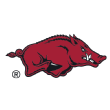
No. 17. Arkansas Razorbacks: The Razorbacks have proved to be legit, with legit staying power, year after year under Eric Musselman. One could credibly argue that this is the best Arkansas Basketball has been over an extended period, with consistent NCAA tournament success season after season since Musselman took over. Bud Walton is rocking again, and the Hogs have high expectations. That said, the Razorbacks lost a ton of firepower from last year's team, but they have been very active in the portal to replace it. Back are Devo Davis, the heart and soul of the team, and Trevon Brazile, injured last year after a great start and ready to come back this year and be a leader on both ends. Brazile's absence last year might have been the difference between a Sweet 16 berth and a Final Four berth. The portal brought Tramon Mark (Houston), Khalif Battle (Temple) and El Ellis (Louisville). Mark is a physical and tough defender and makes a formidable defensive combo with Davis. Battle and Ellis can shoot it, and Baye Fall is yet another McDonald's All American coming to Fayetteville. Arkansas will have good depth and talent, needing only chemistry to stay among the SEC's and the nation's top teams. Arkansas is among the most prepared teams The Bilastrator has seen in recent years, and that should continue.
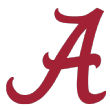
No. 18. Alabama Crimson Tide: What Nate Oats has done on the court at Alabama is nothing short of remarkable. With analytics as a staple, he has created one of the most potent offensive programs in the country, and one that can recruit top prospects with a legit track record of winning and getting players into the NBA draft green room. Last year, Alabama spent significant time at No. 1, and it proved tough on the road with a young nucleus that showed no fear. It was a surprising ending in the NCAA tournament Sweet 16 after winning 31 games, but superstar Brandon Miller did not have a good tournament, making the Tide vulnerable. The Tide have a lot to replace, but they did well in the portal and in recruiting. Gone are Miller, Noah Clowney, Charles Bediako, Jaden Bradley, Nimari Burnett and Noah Gurley. But, Mark Sears and Rylan Griffen return to lead the way with transfers Grant Nelson (North Dakota State) and Aaron Estrada (Hofstra). Nelson is a super skilled wing who can create and shoot it or finish with flair around the rim. Estrada was the Colonial Athletic Association Player of the Year, and fits in perfectly with his playmaking ability and willingness to take the open shot from deep, something Oats' offense requires. Alabama has the size, athleticism and talent to challenge for the SEC title along with Tennessee and Kentucky.
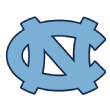
No. 19. North Carolina Tar Heels: You are going to hear it all about North Carolina until the Tar Heels start winning at a high level and douse the burning discussions and takes: The Heels were a low-assist team because they were bad passers, they were selfish ... losing Caleb Love will be addition by subtraction ... the Heels couldn't shoot ... it was NIL ... it was the portal... It doesn't matter, and it is doubtful whether there is one, true explanation. Here is the most likely explanation for last season's poor results: The Heels were overrated at preseason No. 1 and did not handle the expectations well at all. From this seat, which is really a throne, Carolina was not the running and offensive rebounding team it had been in the past, and "easy" baskets were too few and very far between. If Carolina can get back to having a fast break that is feared, the Heels will finish in the top three in the ACC. That should happen because of the return of RJ Davis and the arrival of Elliot Cadeau, a small but very good backcourt. Cadeau was the top point guard in his high school class, and he is a great passer who provides the ball at the right time. Cadeau was a recruiting coup for Hubert Davis. He can bring everything together for Carolina. Armando Bacot returns for his fifth year in Chapel Hill and will send the rebounding record out of sight. With a healthy Jalen Washington after a year of injury, Bacot will have a running mate who can play. The keys will be the transfers, all of whom are winners but played on losing teams last year. That should bring an important dynamic to the Heels: urgency. Cormac Ryan (Notre Dame) is an outstanding shooter and leader; Harrison Ingram (Stanford) is a talented wing; and Jae'Lyn Withers (Louisville) is an athletic big man who will be much better in this system. Carolina was overvalued at the start of last season. The Heels are undervalued at the start of this one.
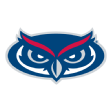
No. 20. Florida Atlantic Owls: Who saw last year coming in Boca Raton? FAU had a once-in-a-lifetime season, winning 35 games and reaching a Final Four, then Dusty May brought almost everyone back to make another run. Extraordinary. May is a former manager for Bob Knight, and he has built a culture of togetherness and selfless service with his program. In fact, two of his best players agreed to come off of the bench last season, providing a "we first" culture instead of "me first." Expect that to continue this year, but expectations can do funny things to a team. FAU will take some losses, which was allowed in past seasons. Will it be allowed this year, and will the players take a loss in stride? Every team will be coming at them, and they will take every opponent's best shot. That is an awesome responsibility.
First Kenpom rankings of the season 👇
— NCAA March Madness (@MarchMadnessMBB) October 17, 2023
Which team's spot stands out to you? 🤔
(h/t @kenpomeroy) pic.twitter.com/Zmqzlg9KyP
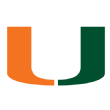
No. 21. Miami Hurricanes: Miami is a model program, and Jim Larrañaga has developed a system of freedom and responsibility that empowers his players to use their skills without fear. The Hurricanes are hard to guard, and they will be again this season. Miami lost quite a bit but will still be formidable. Nijel Pack, Wooga Poplar and Norchad Omier will be the nucleus of the team, and expect versatile Poplar to blossom into a star this season. Miami has added wing Matthew Cleveland from Florida State, and he averaged almost 14 points and over seven boards for the Seminoles. Freshman Kyshawn George can be called a Swiss Army knife because he's really talented and also he's from Switzerland. Miami might not have the depth and size of its first-ever Final Four squad, but the Hurricanes are still going to be very, very good.
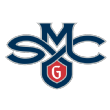
No. 22. Saint Mary's Gaels: The Gaels are going to be very good, but just how good is the issue. Saint Mary's lost a couple of program pillars in Logan Johnson and Kyle Bowen, two mature leaders who brought leadership, toughness and grit to the defensive end. Still, Randy Bennett has plenty of talent to challenge Gonzaga for the WCC crown, and to secure another single-digit seed in the NCAA tournament. Point guard Aidan Mahaney was a revelation last season and needs to take the next step toward being the leader of the team in Johnson's absence. Mitchell Saxen and Harry Wessels bring size, scoring and rebounding, and Alex Ducas knocks down over 40% of his 3s. Saint Mary's has a number of capable wings with versatility and freshman big men with size. Leadership will be the key, and Mahaney's play at point will determine just how good Saint Mary's will be.
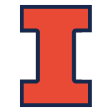
No. 23. Illinois Fighting Illini: The Illini have the players to challenge for the Big Ten title but must shoot the ball better to realize the roster's potential. Illinois was ranked outside the top 300 in perimeter shooting and free throw shooting last season, yet was in the nation's top 20 in 2-point field goal percentage. Terrence Shannon Jr. returns, along with Coleman Hawkins, Luke Goode, Sencire Harris and Dain Dainja, and newcomers Quincy Guerrier and Marcus Domask come in through the portal. Domask was an all-conference performer at Southern Illinois with tremendous versatility and an excellent middle game. If Brad Underwood can solidify the point guard position, Illinois will challenge for its fourth straight NCAA tournament berth.
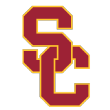
No. 24. USC Trojans: The arrival of Isaiah Collier, the nation's top-rated freshman, gives Andy Enfield one of the best backcourts in the country. Along with veteran guard Boogie Ellis, who keeps improving and is among the country's best scoring guards, USC has speed, size and some strong potential in its starting guards. Collier is fast and has great passing ability on the move, and Ellis averaged over 17 points per game last season, improving his 3-point and free throw output each year for the Trojans. Incoming freshman Bronny James is an unknown due to health concerns, but if he can return, he provides a guard who is versatile and selfless. Collier and Ellis need to stay on the floor, as there is not as much guard depth as frontcourt depth. Kobe Johnson is an outstanding defender, and if 7-0 Vincent Iwuchukwu, coming off of a heart issue and back surgery, stays healthy, USC will be very good.

No. 25. San Diego State Aztecs: Ask Brian Dutcher what the expectations are for this year's Aztecs and he'll say "the national championship." Last year's team was expected to challenge for it and reached the NCAA championship game before falling to UConn. Well, who is going to argue with Dutcher? Not The Bilastrator. San Diego State lost some big pieces to last season's puzzle but has plenty of firepower to be really good again. However, this team lacks the depth and experience of last year's Final Four team. There are no question marks in the backcourt, with Lamont Butler, two fearless guards who defend and can score. Micah Parrish and Jaedon LeDee provide defensive versatility and physicality, and USC transfer Reese Waters will provide additional scoring. Losing Nathan Mensah will necessitate some adjustments in San Diego State's stellar defense, though. Mensah was a big eraser at the rim, erasing counters to the Aztecs' aggressive defense. That will be missed.
Kansas is No. 1️⃣ in the preseason AP poll for the 4th time 🔝 pic.twitter.com/qmJsgyT6Pi
— NCAA March Madness (@MarchMadnessMBB) October 16, 2023
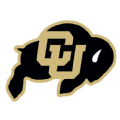
No. 26 Colorado Buffaloes: The Buffs return their one-two punch of Tristan da Silva and KJ Simpson -- both preseason All-Pac-12 first-team selections -- to go with prized freshman wing Cody Williams, CU's first five-star recruit since David Harrison at the beginning of the century. This could be one of Tad Boyle's best teams in Boulder if the Buffs shoot it better, particularly from beyond the arc (32% in 2022-23).
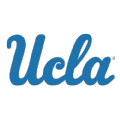
No. 27 UCLA Bruins: Mick Cronin is in unfamiliar territory, having lost his top five scorers from last season, including veteran leaders Jaime Jaquez and Tyger Campbell. While very few known commodities remain, the cupboard is far from bare thanks to the return of sophomore big man Adem Bona and an influx of top-flight international talent. There is a wide range of potential outcomes with a team this young, so it will be very interesting to see how it plays out.
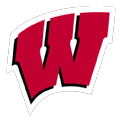
No. 28 Wisconsin Badgers: What this team might lack in star power, it makes up for in experience. The Badgers return almost everyone from last season's squad that went to the NIT semis and, per usual, you can count on them to be gritty defensively and take care of the ball. If junior guard Chucky Hepburn takes his game up a notch, Greg Gard's team should make its way back to the Big Dance.
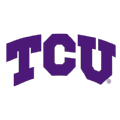
No. 29 TCU Horned Frogs: The dynamic backcourt duo of Mike Miles Jr. and Damion Baugh is gone, so Jamie Dixon dipped into the portal and came out with experienced replacements in Jameer Nelson Jr. (20.6 PPG at Delaware) and Big 12 vet Avery Anderson III (11.1 PPG at Oklahoma State). Perimeter shooting is still expected to be an issue for the Horned Frogs, though, and the production they get from their frontcourt -- at both ends -- will be critical to their success.
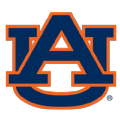
No. 30 Auburn Tigers: Bruce Pearl returns an experienced frontcourt led by 6-10 junior Johni Broome, the team's leading scorer and an elite shot-blocker. But the Tigers' fortunes will be determined by how well the team's revamped backcourt performs, specifically five-star freshman Aden Holloway and FIU transfer Denver Jones.

No. 31 Oregon Ducks: 6-11 N'Faly Dante has dealt with injuries throughout his career but is poised for a big senior season in Eugene. He'll form a solid duo with 7-footer Nate Bittle, but how much production Dana Altman gets from the veteran backcourt of Jermaine Couisnard, Keeshawn Barthelemy and Kario Oquendo will be key. The Ducks will likely struggle from deep again, but if they can stay healthy this season, their two-year Big Dance drought should end.
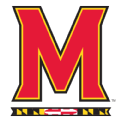
No. 32 Maryland Terrapins: Kevin Willard has quickly put his stamp on the Terps, who return three of their top four scorers from last season: Jahmir Young, Julian Reese and Donta Scott. This Maryland roster is talented and versatile and could surprise if it gets solid contributions from talented freshmen DeShawn Harris-Smith and Jamie Kaiser.
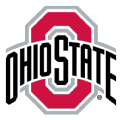
No. 33 Ohio State Buckeyes: The Buckeyes are difficult to forecast after a 2022-23 season that didn't go as planned. Sophomore Bruce Thornton has the qualities you want in a lead guard, and he and his classmates, 6-4 Roddy Gayle Jr. and 6-11 Felix Okpara, hope to make big jumps in Year 2 for a team that needs to improve defensively. Chris Holtmann is banking on Minnesota transfer Jamison Battle to regain his shooting stroke (31.1% from 3 last season).
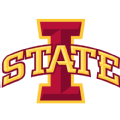
No. 34 Iowa State Cyclones: This is a team that no one looks forward to playing, especially at Hilton Coliseum. The Cyclones were top 10 in defensive efficiency last season but struggled to score at times. T.J. Otzelberger returns just one starter in sophomore point guard and engine Tamin Lipsey, but Iowa State added some shooters in the portal, as well as an impact freshman in 6-8 forward Omaha Biliew.

No. 35 St. John's Red Storm: Rick Pitino is back in the Big East, and he wasted no time overhauling the roster. The only key holdover is also the team's anchor, 6-11 senior Joel Soriano, a walking double-double, and there are plenty of versatile options to work with. Point guard Daniss Jenkins followed Pitino from Iona, and a pair of all-Ivy performers -- Jordan Dingle (Penn) and Chris Ledlum (Harvard) -- will play key roles.
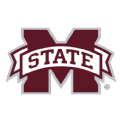
No. 36 Mississippi State Bulldogs: Chris Jans won't have his star big man Tolu Smith (15.7 PPG, 8.5 RPG) until conference play due to injury. That's a big blow at both ends, but the Bulldogs also return the other four starters from last season's team that reached the First Four despite being the worst 3-point shooting team in the nation (and nearly the worst from the line as well). They do it with defense, and if the Bulldogs can improve their shooting, they will be a real handful when Smith returns to full strength.
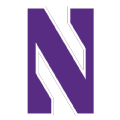
No. 37 Northwestern Wildcats: The Wildcats' chances of making back-to-back NCAA tourney appearances for the first time ever were boosted when All-Big Ten point guard Boo Buie decided to return for one more season. Northwestern will miss co-Big Ten Defensive Player of the Year Chase Audige, but Chris Collins will look to Brooks Barnhizer to build upon his strong finish to last season and for Princeton transfer Ryan Langborg to provide shot-making.
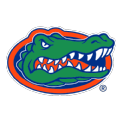
No. 38 Florida Gators: Sophomore Riley Kugel is one of the most popular breakout picks this season. He is part of a solid backcourt that also includes Will Richard (40% on 3s) and transfers Walter Clayton Jr. (16.8 PPG at Iona) and Zyon Pullin (18.3 PPG at UC Riverside). If Todd Golden gets more on the offensive end this season, the Gators could surprise in the very competitive SEC.

No. 39 Clemson Tigers: Brad Brownell's crew won 23 games last season and tied for third in the ACC and still didn't get invited to the Big Dance. Hunter Tyson's rebounding and well-rounded game will be missed, but the Tigers bring back one of the top players in the ACC in 6-10 PJ Hall and point guard Chase Hunter to set the tone. Add in Syracuse transfer Joe Girard and the Tigers have the recipe to reach the NCAA tournament this season.

No. 40 Indiana Hoosiers: The Hoosiers lost a ton of production from last year's 23-win team, so Mike Woodson is counting on the return of point guard Xavier Johnson, who missed the final three months of the season to injury, as a spark plug. He'll have some top-notch frontcourt help to lean on, as sophomore Malik Reneau is ready to take on a larger role, Oregon transfer Kel'el Ware showed flashes as a freshman and star recruit Mackenzie Mgbako should make noise right away.
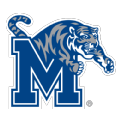
No. 41 Memphis Tigers: Memphis was on the wrong end of a dramatic finish in the first round loss to FAU in March, but Penny Hardaway has reloaded by hitting the portal. Jahvon Quinerly (Alabama) will run the point, and there is versatility and length to put pressure on opponents at both ends of the court.
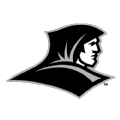
No. 42 Providence Friars: Providence will try to bounce back from a tough end to the 2022-23 season that saw a loss in the quarterfinals of the Big East tournament before losing to Kentucky in the NCAA tournament. The Friars have to replace three starters, but Bryce Hopkins is back, which is crucial for first-year head coach Kim English. Hopkins led the team with 15.8 points and 8.5 rebounds per game and will be the leader of this Providence team this season.
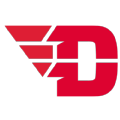
No. 43 Dayton Flyers: The Flyers return a great deal of experience from last year's squad and enter the season as Atlantic 10 favorites. Four starters return, including preseason all-conference selections DaRon Holmes II and Malachi Smith. The pair combined to average 26.8 points per game last season while Smith established himself as a top-tier defender in the A-10.

No. 44 West Virginia Mountaineers: West Virginia enters the season with a new coach for the first time in 17 years as interim coach Josh Eilert takes over for Bob Huggins. Eilert had to replace all five starters and, as with many programs, he turned to the transfer portal to build a new roster. Four projected starters transferred in during the offseason, including Jesse Edwards, who averaged 14.5 points and over 10 rebounds per game last season for Syracuse, and point guard Kerr Kriisa from Arizona.
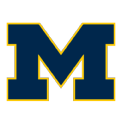
No. 45 Michigan Wolverines: Coach Juwan Howard enters his fifth season at his alma mater with some questions about his roster after losing Kobe Bufkin and Jett Howard to the NBA. Transfers Nimari Burnett (Alabama), Tray Jackson (Seton Hall) and Olivier Nkamhoua (Tennessee) will all have an impact this season, and Dug McDaniel is back to run the point for Howard.
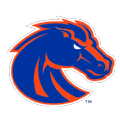
No. 46 Boise State Broncos: Boise State didn't lose any players to the transfer portal during the offseason, a rarity in the modern game. Coach Leon Rice picked up Cam Martin (Kansas) and O'Mar Stanley (St. John's) in the portal, though, and they will add depth to a roster that brings back Tyson Degenhart, who scored over 14 points per game last season. San Diego transfer Roddie Anderson will likely take over at point guard this season, and Rice's son Max provides a threat from 3 for the Broncos.
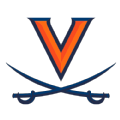
No. 47 Virginia Cavaliers: Virginia fell prey to the first upset of the 2023 NCAA tournament after entering the competition as a 4-seed with high hopes. Reece Beekman returns for his fourth season with the Cavaliers after earning ACC Defensive Player of the Year last season. He will be joined by Oklahoma transfer Jake Groves, who shot over 38% from 3 in Norman last year, and center Jordan Minor, who averaged 17.4 points last season with Merrimack.

No. 48. Kansas State Wildcats: We'll find out a lot about the Wildcats, who have to replace tournament star Markquis Nowell and Keyontae Johnson, early in the season with nonconference games against USC and Villanova. Coach Jerome Tang, who hit the transfer portal this offseason, has a considerably different roster in his second year with the program, but familiar faces David N'Guessan and Cam Carter will provide experience in Manhattan.
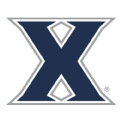
No. 49 Xavier Musketeers: After a run to the Sweet 16, coach Sean Miller will have to replace leading scorer Souley Boum (16.4 points per game) and Colby Jones, who is now a member of the Sacramento Kings. On top of that for Miller, Zach Freemantle (15.2 PPG) and Jerome Hunter both appear to be unlikely contributors this season due to injury. The transfer portal and international recruits have added to the roster, but there will be a lot of new faces for the Musketeers this season in a competitive Big East.

No. 50 Wake Forest Demon Deacons: Formerly a mainstay, the Demon Deacons haven't made the NCAA tournament since 2017. Two Gonzaga transfers, Efton Reid III and Hunter Sallis, join the fold for coach Steve Forbes and add plenty of tournament experience in Winston-Salem. Forbes has put together back-to-back winning seasons with the Deacs, including a run to the NIT quarterfinals last season. The next step is getting back to the NCAA tournament.
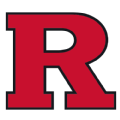
No. 51 Rutgers Scarlet Knights: Rutgers has a loaded recruiting class coming in 2024, but that season is still a year away. Senior Cliff Omoruyi is back after averaging nearly a double-double last season with 13.2 points and 9.6 rebounds per game. He also added over two blocks per game last season and will need to be the leader of a team full of fresh faces in Piscataway.

No. 52 New Mexico Lobos: Jaelen House and Jamal Mashburn Jr. both landed in the preseason All-Mountain West team, which puts the Lobos in a good position to compete for the conference title. The pair combined to average 36 points per game last season and will be back as one of the most competitive backcourts in the Mountain West. New Mexico was picked to finish third in the conference in the preseason poll.

No. 53 Iowa Hawkeyes: Coach Fran McCaffery returns a solid core of players in Tony Perkins, Payton Sandfort and McCaffery's son Patrick, but will have to replace Kris Murray, who is now in the NBA. Freshman Owen Freeman and Belmont transfer Even Brauns join the squad and will provide a lot of length inside as the team tries to improve on defense. If the Hawkeyes can get the defense near the same level as the offense, they could be tournament bound again.
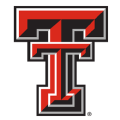
No. 54 Texas Tech Red Raiders: Grant McCasland takes over in Lubbock after six years and a lot of success at North Texas. He hit the transfer portal hard during the offseason, and the projected starting lineup features four new players, including two from Arizona State in forwards Devan Cambridge and Warren Washington. Pop Isaacs, who averaged 11.5 points per game last season with the Red Raiders, is the lone returning player in the projected starting five.
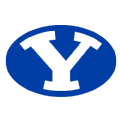
No. 55 BYU Cougars: BYU's first season in the Big 12 might be tough as the Cougars were picked to finish 13th out of 14 teams in the preseason media poll. Charlotte transfer Aly Khalifa, who averaged 11.7 points last season and stands 6-11, transferred into the program and will be a solid addition to Fousseyni Traore inside the paint and on the glass. Dallin Hall will lead the team from the point guard position and will be joined in the backcourt by UC Irvine transfer Dawson Baker.

No. 56 Stanford Cardinal: With a move to the ACC on the horizon next season, the Cardinal hope to make their final season in the Pac-12 a memorable one. They will have to replace Harrison Ingram and Michael O'Connell, both of whom left in the transfer portal, but three starters return from last season's 14-19 team. Guards Jared Bynum (Providence) and Michael Jones (Davidson) transferred in during the offseason to round out the starting five.
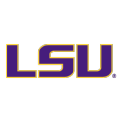
No. 57 LSU Tigers: The Tigers will have to replace several key pieces from last year's roster, including K.J. Williams and his 17.7 points per game. Coming off a 14-19 season, Matt McMahon turned to the transfer portal to rebuild his team. He added six transfer players this offseason and picked up two four-star recruits in guard Mike Williams and post player Corey Chest. The NCAA denying transfer Jalen Cook's request for immediate eligibility this past Thursday is a preseason blow for a team looking for a bounce-back season.

No. 58 Cincinnati Bearcats: In their first season in the Big 12, the Bearcats hope to hit the ground running with a roster full of new faces. Coach Wes Miller landed two recruits who should make an impact this season in Rayvon Griffith and Jizzle James, son of NFL Hall of Famer Edgerrin James, and his work in the transfer portal will round out the squad as the Bearcats try to navigate their first year in a Power 5 conference.

No. 59 Utah Utes: The Utes return leading scorer Branden Carlson from last year's team along with 3-point specialist Gabe Madsen, two key options for coach Craig Smith. At 7 feet, Carlson averaged 16.4 points last season while also grabbing a team-high 7.5 rebounds a game. Utah will rely heavily on pickups in the transfer portal, with Cole Bajema (Washington) and Deivon Smith (Georgia Tech) entering the fray.
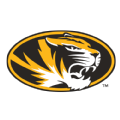
No. 60 Missouri Tigers: The Tigers will have plenty of holes to fill from a roster that went 25-11 last season in coach Dennis Gates' first season. In Year 2, Gates recruited well and hit the transfer portal in hopes of a return trip to the NCAA tournament. Three projected starters transferred in during the offseason, but familiar faces Nick Honor and Noah Carter will provide experience for Gates and the Tigers.
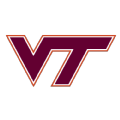
No. 61 Virginia Tech Hokies: After losing leading scorer Grant Basile, the Hokies will turn to Sean Pedulla to lead the offense during the 2022-23 campaign. He averaged 15 points per game last season, second on the Virginia Tech roster, and is always a 3-point threat. Coach Mike Young put an emphasis on defense this summer after a disappointing 19-15 record last season.
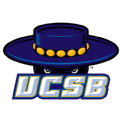
No. 62 UC Santa Barbara Gauchos: The Gauchos notched a second trip to the NCAA tournament in three seasons last season, and it looks like just the start for Joe Pasternack's squad. Ajay Mitchell returns this season as the reigning Big West Conference Player of the Year after averaging 16.3 points (on 50.6% shooting) and 5.1 assists last season.
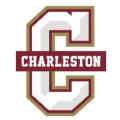
No. 63 Charleston Cougars: The transfer portal will once again be key for the Cougars this season after they lost three key players from the 31-win team a year ago. Coach Pat Kelsey will lean on four transfers and the junior class of Reyne Smith, Ante Brzovic and Ben Burnham to guide Charleston back to the tournament this season.
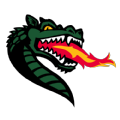
No. 64 UAB Blazers: UAB got hot at the right time last season, battling all the way to the NIT title game. The Blazers eventually lost to North Texas, a team they beat in the Conference USA tournament championship, but will hope to build on that momentum this season. Eric Gaines will be the key factor for UAB after scoring 11.5 points and 4.3 assists last season.
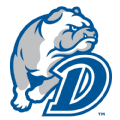
No. 65 Drake Bulldogs: Coming off a 27-win season featuring a Missouri Valley Conference tournament title, the Bulldogs look to replace three key contributors due to graduation. Drake is the regular-season conference favorite this season, however, thanks to junior guard Tucker DeVries, who was named preseason Missouri Valley Player of the Year.

No. 66 Colorado State Rams: Guard Isaiah Stevens enters 2023-24 as the preseason Mountain West Player of the Year, the first Ram to do so. He averaged 17.9 points last season while adding 6.7 assists and 3.4 rebounds per game. Colorado State was tabbed to finish fifth in the conference in the preseason media poll.
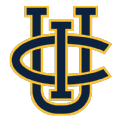
No. 67 UC Irvine Anteaters: After a Big West title last season, the Anteaters will turn to Justin Hohn, Andre Henry and Devin Tillis for leadership this season in hopes of another conference championship. UC Irvine will also have depth with a graduate student, two fifth-year seniors and five new faces all on the roster.

No. 68 Akron Zips: The Zips were selected to win the MAC regular season this year after receiving 11 of 12 first-place votes in the preseason media poll. Guard Ali Ali and forward Enrique Freeman, both seniors, will lead Akron this season with plenty of experience. Ali transferred in from Butler in the offseason and should pair nicely with Freeman, who averaged 16.8 points last season.
The Bilastrator's Preseason All-America Teams
First Team
Zach Edey, Purdue
Tyler Kolek, Marquette
Hunter Dickinson, Kansas
Kyle Filipowski, Duke
Ryan Kalkbrenner, Creighton
Second Team
Armando Bacot, North Carolina
Wade Taylor IV, Texas A&M
Justin Moore, Villanova
Tyson Walker, Michigan State
Oumar Ballo, Arizona
Third Team
Donovan Clingan, UConn
DaRon Holmes, II, Dayton
Boo Buie, Northwestern
Tyrese Proctor, Duke
Reece Beekman, Virginia
Player of the Year: Zach Edey, Purdue
Freshman of the Year: Isaiah Collier, USC
The Bilastrator's Preseason All- Defensive Team
Ryan Kalkbrenner, Creighton
Dajuan Harris, Kansas
Reece Beekman, Virginia
Ace Baldwin, Penn State
Lamont Butler, San Diego State
